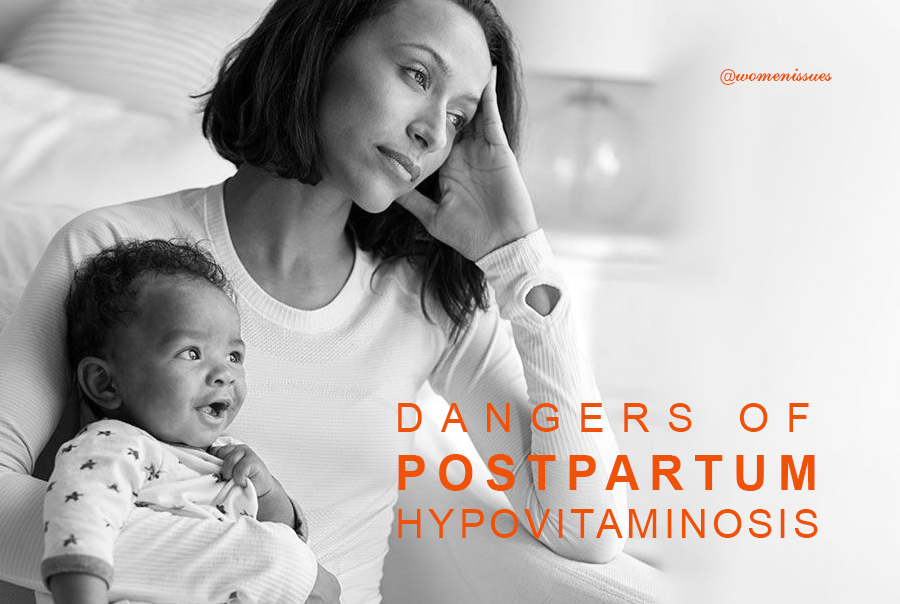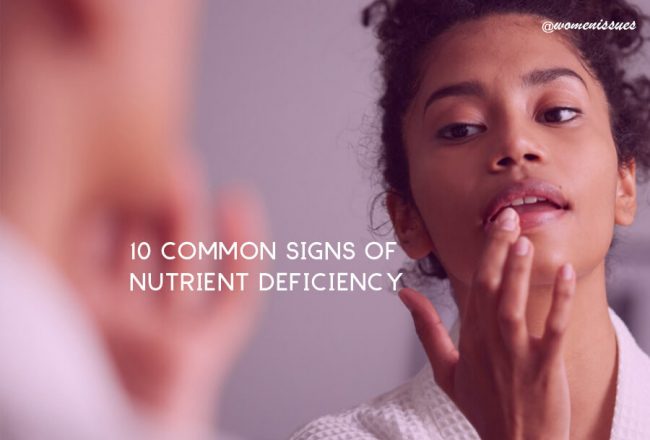Hypovitaminosis is the lack or deficiency of vitamins in your body. Postpartum hypovitaminosis is mostly mistaken for fatigue associated with looking after the baby. Hypovitaminosis affects the nutritional properties of breast milk and it may hinder lactation. Postpartum women must be advised and encouraged to receive enough nutrition, which is best achieved through the consumption of a balanced healthy diet. It is most important to eat nutritious meals for breastfeeding moms.
The postpartum hypovitaminosis symptoms may include:
Bad mood
generally, food does affect our moods and it can be increased when you are a new mom who has to face a lack of sleep, lack of quiet time, recovering body, and possibly an irritable baby who always cries taking away the joys of being a new mom. If you are constantly in a bad mood, you will easily snap and be irritated by your baby as well. We believe babies can pick up on our moods so they will be affected by it and be irritable as well.
Dry, pale skin
lack of taking proper care of your skin on the outside and lack of proper sleep and or rest alongside lack of vitamins, this condition can become worse. Stressing over whatever you going through with the baby will also show on your skin.
Being tired regardless of getting enough sleep
childbirth and loss of blood during delivery can cause iron deficiency. You need to supplement or eat a diet rich in iron to boost your energy levels.
General weakness
with a healthy balanced diet, we help our bodies to manufacture red blood cells. Red blood cells distribute oxygen from the lungs to the rest of our body and taking carbon dioxide back to the lungs to be exhaled. Low red blood cells count can amongst many other symptoms can cause fatigue and dizziness. Eat enough food with vitamin C and B-12. Muscle weakness may be a sign of vitamin E deficiency.
Postpartum depression
it is quite daunting and easy to fall into depression while trying to adapt to your new lifestyle. Consuming vitamin D can assist new moms to ward off postpartum depression and anxiety. Consult your doctor if you suffer or suspect you suffer from postpartum depression, supplementing on vitamin D without proper diagnosis and treatment will not solve the issue. Consume higher omega 3 fatty acid (DHA) as well. Breast milk with high concentrations of DHA can help the baby with brain development.
Memory loss
ever heard of moms who forget their babies? It happens quite often and it isn’t a matter of having no mommy skills. Those moments may signal calcium deficiency, note that your body can take all the calcium it needs from your bones to make sure your baby gets enough from breastmilk. Lack of calcium will further cause you weak nails and hair.
Eating a well-balanced meal will assist in preventing hypovitaminosis during the postpartum period.
Your diet should include:
Fruits and vegetables including dried fruits
Whole-grain cereals, crackers, and toast with milk
Cheese
Milk
Nuts and seeds
Hard-boiled eggs
When breastfeeding, your diet should be rich in vitamin A, C, E, and D, vitamin B complex, iodine, zinc, choline, copper, selenium and iron. It is not easy to eat the right meals let alone preparing them when you have a newborn that is taking up all your time. At times you can’t even have time to pee or take an hour nap however, it is critical now more than ever to maintain your good health after the intense process of giving birth.
Breastfeeding mom’s diet has a direct impact on the baby’s health, growth and development. When you are breastfeeding, do not just take supplements with your diet before discussing it with your doctor or safely take postnatal supplements. You should continue with a healthy diet for as long as you are breastfeeding. Getting the right vitamins and minerals will help all new moms breastfeeding or not with their journey to recovery. The dangers of hypovitaminosis don’t only affect the mother but it does impact the newborn baby as well, they may suffer some illnesses due to lack of vitamins on their mother’s breast milk. For example, a lack of vitamin A in a mother might increase the risk of Alzheimer’s in their baby.
It may sound like a lot is required from you after a period of 9 months and beyond however against all odds you need to recover well while making certain your baby is well nourished. Your baby deserves a healthy mom just as it deserves to stay healthy. You carried that little one for months and now the journey should continue with much more patience. Relax, time flies and they grow up so quickly and all these cautious measures that may seem a little too extreme will be a thing of the past. In no time you will start to worry about other things as they grow.
**MOTHERHOOD IS A LIFETIME JOURNEY, ENJOY WITH THE SAFE BALANCED RIDE**



No Comment